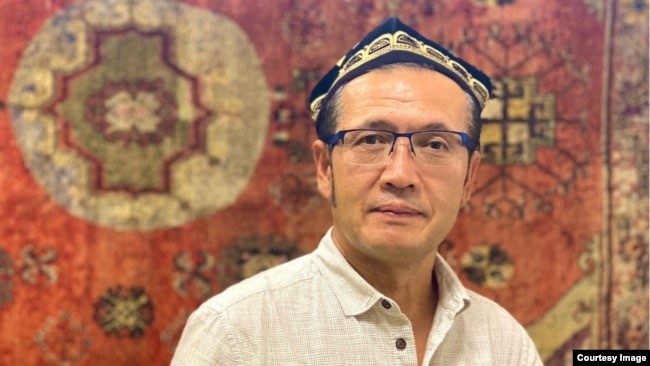The Uyghurs and Siberia, victims of colonialism
For poet Aziz Isa Elkun - an exile in London - 'it is important to talk about Xinjiang, and the problem is not the Muslim faith, it is human rights'. The Uyghurs want to live as free as their Kazakh or Uzbek 'cousins', and do not recognise China's right to ownership of their soul and identity.
Almaty (AsiaNews) - At the beginning of November the book "Uyghur Poems" in English translation, edited by Aziz Isa Elkun, a well-known Uyghur poet of emigration, was presented at the University of London. Humanitarian activist and scientific collaborator of the university, Aziz was born and raised not far from the Chinese nuclear range on Lake Lob-Nor, and throughout his childhood he saw a strange dust that darkened the sky.
In 1999 he was arrested by the security services for his stance against the policy of "assimilation of the Uyghurs", but he later managed to escape from China, obtaining political asylum in Great Britain, without however severing ties with his " small homeland” of Xinjiang.
The People's Republic of China had triumphantly announced that it had successfully tested a 22-kiloton nuclear warhead in 1964, feeling itself the "fifth great world power". The test took place near the dried-up lake of Lob-Nor, in the area of the Uyghurs who call it Karakošukkol.
Precisely in the region of area as a base for nuclear tests, so much so that the Uyghurs in the area have become accustomed to the "mushroom clouds" that stand out on the horizon.
Aziz Isa Elkun visited the city of Almaty in Kazakhstan in recent days, taking part in an international conference. He told journalists about his childhood "among the four nuclear polygons", and how the Uyghurs of Xinjiang had long hoped to become Uyghurstan, the sixteenth republic of the USSR, after the "cultural revolution" which had reduced the Chinese population, with millions of victims. “I was lucky to be born healthy” – remembers Aziz – while some of my classmates were missing ears, some were missing fingers, or were growing something too large, and in any case everyone was missing bread”.
In one of his memoirs, Aziz wrote that he “did not see khantsy [Uyghur-speaking Chinese] until I was 10, and I didn't even know what electric current was.” The Chinese Communists had invaded the region in 1949, with Soviet support, and the local Uyghurs welcomed the Russians and even learned their language, while the Chinese remained strangers to them.
In 1955 the autonomous Xinjiang-Uigursky district was established, hoping that it would become a Soviet republic, like the Turkish-speaking border republics of Kazakhstan, Kyrgyzstan and Uzbekistan. The 1964 quarrel between China and the USSR created a lot of havoc in the area: many Uyghurs managed to escape to Soviet Kazakhstan, concentrating mainly in the cities of Žarkent and Almaty. The Soviets supported Uyghur separatism with radio propaganda, promising to welcome all Uyghurs to their territories.
Aziz learned Chinese in middle school, taught by Uyghur teachers who did not themselves know the language, which was compulsory for enrolling in university, where Chinese students did not communicate with Uyghur students, they went to eat in different canteens and slept in hostels separated.
The poet believes that "it is important to talk about Xinjiang, and the problem is not the Muslim faith, we are talking about human rights". The Uyghurs want to live free like their Kazakh or Uzbek "cousins", and do not recognize China's right to ownership of their soul and identity.
In a poem to his deceased father, Elkun recalls:
Dear father, you were a green-fingered gardener / Now the garden has grown, but you are not there to prune the plants / You were a doctor and an angel of souls / Now my heart is broken, and you are not there to heal it.
His father's body was removed from his site, because in Xinjiang, "East Turkestan", all the traditional cemeteries were destroyed, along with most of the mosques. Colonialism has been overcome almost everywhere in the world, but not in Western China.
17/06/2019 12:40
13/08/2018 13:02
16/06/2006







.png)










